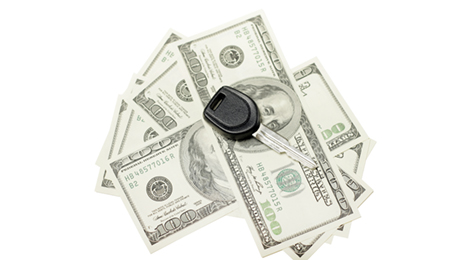April ABS movements hint at possible future losses

By subscribing, you agree to receive communications from Auto Remarketing and our partners in accordance with our Privacy Policy. We may share your information with select partners and sponsors who may contact you about their products and services. You may unsubscribe at any time.
NEW YORK –
S&P Global Ratings reported that collateral performance in the U.S. prime and subprime auto loan asset-backed securities (ABS) sectors was mixed in April relative to March. Analysts indicated that while losses and recoveries continued to show seasonal improvement on a month-over-month basis, delinquencies rose.
According to a report published by S&P Global Ratings, the prime 60-plus-day delinquency rate increased to 0.43 percent in April from 0.41 percent in March and increased from 0.35 percent in April of last year. The subprime 60-plus-day delinquency rate also increased to 3.85 percent in April from 3.57 percent in March 2017 and from 3.38 percent in the same month last year.
The firm pointed out its modified subprime 60-plus-day delinquency rate — which excludes certain high-loss deep subprime issuers — increased to 2.93 percent in April from 2.74 percent in March and ticked up from 2.69 percent versus last April.
Due to the monthly increase in delinquencies, we expect losses to rise on a month-over-month basis now that the tax refund season has ended,” analysts said.
While prime and subprime losses and recoveries improved on a month-over-month basis due to seasonal factors, namely tax receipts, losses increased and recoveries weakened year over year for both sectors,” they continued.
In S&P Global Ratings' view, declining used vehicle values, which are partly due to the increase in off-lease vehicles, have led to lower recovery rates. In addition, the firm noted recovery rates have been affected by longer loan terms and higher loan-to-value (LTV) ratios.
Subscribe to Auto Remarketing to stay informed and stay ahead.
By subscribing, you agree to receive communications from Auto Remarketing and our partners in accordance with our Privacy Policy. We may share your information with select partners and sponsors who may contact you about their products and services. You may unsubscribe at any time.
Lower used-vehicle values are having a greater impact on the subprime sector because it has a higher level of repossessions,” analysts said.
“Another contributing factor may be the mix of vehicles in subprime pools, which tend to be skewed toward more affordable cars,” they continued. Crossovers and trucks, which make up a greater share of many prime pools, are maintaining their values better in the low gas price environment.”


